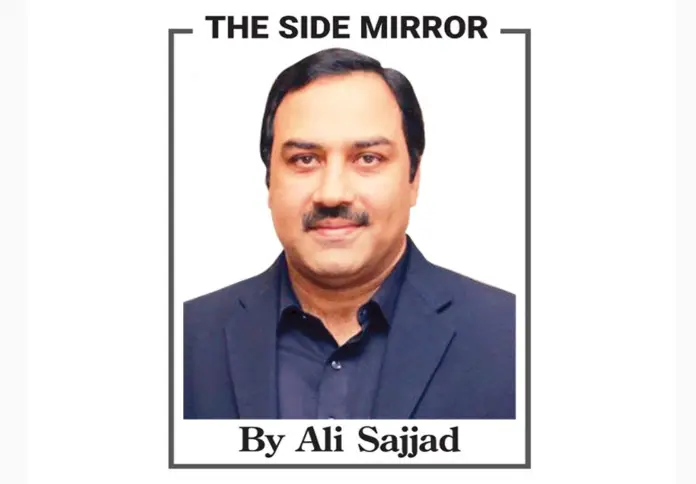On Sunday night, I watched a TV talk show after a long time. The anchor as well as the panelists were trying to draw parallels between Imran Khan and Nawaz Sharif in politics as well as governance.
Their discussion remained a futile exercise as the “esteemed intellectuals” discussed tactics used to victim and favour both Imran Khan and Nawaz Sharif in the past.
Often, they were off track.
If you ask me to compare Nawaz Sharif with any contemporary politician it is not only inappropriate but also does a disservice to the other politician. The same thing stands for Imran Khan and Bhuttos and so on.
Let us call Imran Khan, Nawaz Sharif, Bilawal Bhutto-Zardari and other leaders “prime minister material” and time has indeed validated that sentiment.
Of the long list of prime minister material, I will go for Nawaz Sharif for several reasons.
The most important reason is that Nawaz Sharif gave Punjab and Lahore Shehbaz Sharif who worked on for a decade, transforming the province into a cradle of development.
I will leave it to Imran Khan’s supporters to explain Imran Khan’s choice Usman Buzdar.
The disparity is evident. I call Nawaz Sharif a symbol of progress and development, and other side can attempt to present Imran Khan’s Buzdar as a counterpart of Shehbaz Sharif.
I will ask Imran Khan’s supporters to convince me about his actions that have strained Pakistan’s longstanding relations with numerous countries, including Saudi Arabia, China, and Turkey. I can explain how Nawaz Sharif fostered exemplary relations with China, Saudi Arabia, and Turkey. During Nawaz Sharif’s tenure, the prime minister of India even visited Lahore twice, showcasing a level of diplomacy that is yet to be matched. It speaks volumes about Nawaz Sharif’s robust foreign policy that despite the acrimonious differences, both Narendra Modi and Vajpayee journeyed to Lahore to meet him. Nawaz Sharif consistently demonstrated through actions that the paramount objective was to fortify democracy. General Kayani and General Raheel Sharif were not granted extensions to avoid any adverse impact on the democratic system, while Imran Khan extended General Bajwa’s tenure.
While Nawaz Sharif steered Pakistan through political, economic, external, and administrative challenges, someone should explain the Imran Khan government’s achievements. Drawing a fair comparison between such disparate political legacies seems unjust.
When Imran Khan assumed power and Nawaz Sharif faced a contentious Supreme Court decision for not taking a salary from his son, a comparison of economic data, growth rates, terrorism levels, progress on CPEC, and the status of load shedding by April 2022 will unveil the real efficacy of Imran’s governance. During the relentless legal onslaught against Nawaz Sharif, he appeared in court over 150 times, maintaining a dignified silence that safeguarded national secrets. In stark contrast, Imran Khan fueled mistrust by concocting a narrative of ciphers and alleged US interference, jeopardizing national security. He seemed indifferent to the toll this cipher drama exacted on the lives of fellow countrymen and Pakistani diplomats abroad.
Those attempting to draw comparisons between Imran Khan and Nawaz Sharif today ought to reconsider. Tell me why Imran Khan faces corruption allegations so robust and substantive that evading accountability seems implausible. Imran Khan himself is implicated directly in corruption cases involving trillions of rupees, including the Punjab Chinese export scandal, the medicine scam, the Khyber Pakhtunkhwa helicopter scandal, and the billion tree scam. These cases are not recent developments; they date back to the time when Imran Khan held the position of Prime Minister.
Hence, crafting a narrative suggesting that Imran Khan should be granted leniency in the name of a level playing field, merely because they lead a political party, is unjust.







